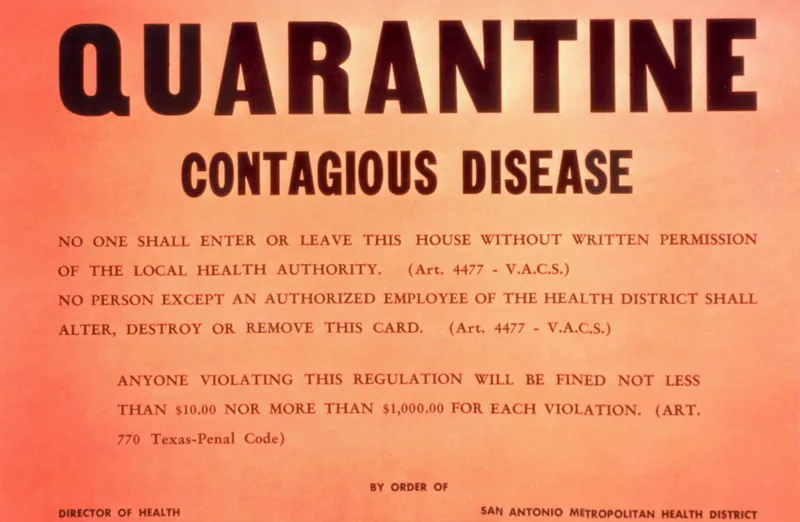
Crisis Management Strategies
Handling a crisis involves quick, transparent communication to manage your brand’s reputation and minimize damage. It can protect customer trust but requires preparedness and clear protocols. Balancing immediate action with long-term recovery plans is essential for effective crisis management.
Sub-strategies
| Name | Description |
|---|---|
| Crisis Communication Strategy | Responding effectively to negative events to protect your brand's rep… |
| Recovery Marketing Strategy | A strategy to regain customer trust and market position after a setba… |
| Reputation Management Strategy | Monitoring and influencing how your brand is perceived online and off… |
Related Tactics
| Name | Description | Difficulty | Cost |
|---|---|---|---|
| Build and maintain strong relationships with media contacts | It's all about nurturing connections with journalists and media profe… |
Intermediate
|
Medium
|
| Conduct media training for spokespeople to ensure effective communication | Media training helps spokespeople communicate effectively with the pu… |
Intermediate
|
Medium
|
| Conduct sentiment analysis on social media and customer reviews | Analyze what customers and social media users think about your brand … |
Intermediate
|
Medium
|
| Create pre-approved messaging templates for various crisis scenarios | In times of crisis, having pre-approved messaging templates can save … |
Intermediate
|
Medium
|
| Develop a comprehensive communication plan to announce the rebrand | Creating a communication plan to announce your rebrand ensures a seam… |
Intermediate
|
Medium
|
| Develop a comprehensive crisis communication plan outlining roles and responsibilities | Creating a crisis communication plan helps ensure that everyone knows… |
Intermediate
|
Medium
|
| Develop a media outreach strategy for regular communication | This strategy involves consistent engagement with media outlets to en… |
Intermediate
|
Medium
|
| Develop a proactive PR strategy to build a positive brand image | A proactive PR strategy puts your brand in control of the narrative, … |
Intermediate
|
Medium
|
| Develop a rapid response plan for negative feedback or crises | Creating a rapid response plan helps your brand handle negative feedb… |
Intermediate
|
Medium
|
| Develop a robust governance structure to manage the joint venture effectively | Creating a strong governance framework helps keep joint ventures on t… |
Intermediate
|
Medium
|
Related Tools
| Name | Description | Pricing | Ease of Use |
|---|---|---|---|
| Google Alerts | Google Alerts is a powerful tool designed to assist marketing profess… |
Paid Only
|
Moderate
|
| Hootsuite | Hootsuite is a comprehensive social media management platform designe… |
Paid Only
from $99.00/mo
|
Moderate
|
| Khoros | Khoros is a robust digital marketing platform designed to enhance bra… |
Paid Only
|
Moderate
|
| Meltwater | Meltwater is a comprehensive media intelligence platform designed for… |
Paid Only
|
Moderate
|
| Mention | Mention is a comprehensive social listening and media monitoring tool… |
Paid Only
|
Moderate
|
| Meta Rights Manager | Meta Rights Manager is a sophisticated tool designed to help marketin… |
Paid Only
|
Moderate
|
| Muck Rack | Muck Rack is a PR and media relations platform designed to streamline… |
Paid Only
|
Moderate
|
| Newswire | Newswire is a comprehensive marketing tool designed to enhance brand … |
Paid Only
|
Moderate
|
| Nuvi | Nuvi is a powerful social media intelligence and analytics platform d… |
Paid Only
|
Moderate
|
| PR Newswire | PR Newswire is a leading global communications platform that enables … |
Paid Only
|
Moderate
|
Quick Facts
Strategy Type
Marketing Strategy
Pros
- Rapid Response: Effective crisis management strategies ensure a swift response to issues, minimizing potential damage and maintaining control over the situation.
- Protects Reputation: Proactive crisis management helps safeguard the brand’s reputation by addressing problems transparently and effectively, preserving public trust.
- Customer Trust: Handling crises well can enhance customer trust and loyalty, demonstrating the company’s commitment to accountability and reliability.
- Minimizes Financial Losses: By quickly addressing and resolving crises, businesses can reduce financial losses associated with negative publicity, lawsuits, or operational disruptions.
- Improves Preparedness: Developing and practicing crisis management strategies improves overall organizational preparedness, making the team more capable of handling future issues.
- Enhances Communication: Clear and consistent communication during a crisis keeps stakeholders informed and reassured, reducing confusion and panic.
- Strengthens Team Coordination: Crisis management strategies foster better coordination and collaboration within the team, ensuring a unified and effective response during critical situations.
Cons
- High Stress Levels: Managing a crisis can create high stress and pressure for the team, potentially leading to burnout and decreased productivity.
- Resource Intensive: Crisis management strategies require significant resources, including time, money, and personnel, which can strain the organization’s operations and budget.
- Potential for Miscommunication: In the rush to respond quickly, there is a risk of miscommunication or inconsistent messaging, which can exacerbate the situation and damage trust.
- Short-Term Focus: Emphasizing immediate crisis resolution may lead to short-term thinking, neglecting long-term strategic planning and growth.
- Reputational Risk: Poorly executed crisis management can harm the brand’s reputation more than the initial crisis, leading to lasting negative perceptions.
- Legal and Compliance Challenges: Navigating legal and regulatory requirements during a crisis can be complex and time-consuming, increasing the risk of non-compliance.
- Opportunity Cost: Focusing on crisis management diverts attention and resources from other important business activities, potentially hindering overall progress and innovation.